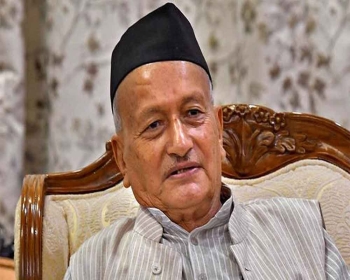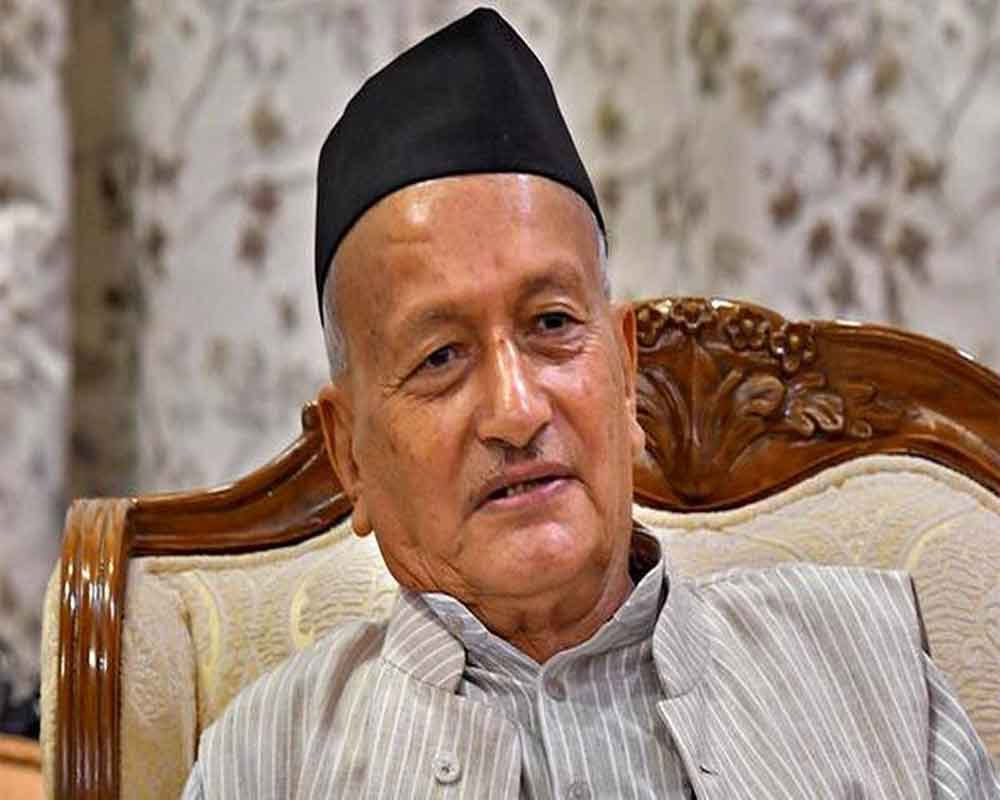
.png) Joseph Maliakan
Joseph Maliakan

The Supreme Court while hearing a matter, on March 15, regarding the action of the Maharashtra Governor in ordering a floor test in the wake of the alleged Shiv Sena split, observed that the Governors would be seriously undermining democracy if they were to misuse their constitutional office to call for a Trust vote, citing dissension within a ruling political party, especially if it will lead to the fall of a legitimately established government.
"A Governor must be aware of the fact that his very calling for Trust vote may precipitate the loss of majority for a government. Calling for a Trust vote may itself lead to the toppling of a government…. Governors must not lend their offices for effectuating particular result... The Governor cannot enter into any area by which his action would precipitate the fall of a government,” Chief Justice D.Y. Chandrachud heading a five-judge Constitution Bench observed.
The Solicitor General Tushar Mehta on behalf of the Governor argued that there was a serious difference of opinion within the Shiv Sena between the Eknath Shinde faction and the Udhav Thakarey one. To this, the Chief Justice said, "the Shinde group had a remedy then. They could have voted their leader out. But can the Governor say that there is dissension about certain aspects of the leadership and a Trust vote is called for? This was a government which had already established its majority in the House. It was a functioning government. Can the Governor, I ask again, use his powers to precipitate the fall of an elected government? This is very, very serious for our democracy."
The severe and unprecedented criticism by the Chief Justice of India of Maharashtra Governor's order for a floor test on the ground that there was dissension in a ruling party has once again revived the debate for the abolition of the Governor's post which is futile burden carried over by the democratic India from her colonial past.
In a speech in the Constituent Assembly on 2 June 1949, Dr. B. R. Ambedkar said, “The Governor under the Constitution has no functions which he can discharge by himself, he has only certain duties to perform."
However, in the recent past, Governors have been as a rule functioning as if they are a law unto themselves, often over-ruling the wishes of the democratically elected state governments, sitting on important legislation duly enacted by state legislatures, refusing to even read address to legislatures approved by the state Cabinet. The behaviour or rather misbehaviour and overbearing attitude of the Governors of Kerala, West Bengal, Jharkhand and Tamil Nadu have been particularly unconstitutional.
The Tamil Nadu Governor, N. Ravi, a former police officer, has been behaving as though he is heading a Police State. He had the audacity to even change the name of the state of Tamil Nadu and state that the Dravidian model of politics is regressive. He advised a group of civil service aspirants that whenever there is a dispute between the Union and the States one should side with the Union regardless of the constitutional provisions or the court rulings. He blacked out certain portions of the address to the Tamil Nadu Assembly approved by the State Cabinet and refused to call out the names of even Periyar and B.R. Ambedkar!
The Kerala Governor, Arif Mohamed Khan, has been behaving as if he is the sole depository of constitutional law and he alone can correctly interpret the Constitution of India. Quite often he has been making pronouncements as if the elected State government is a mere appendage to the post of the Governor of the State. One fine morning he sacked six Vice-Chancellors of the state universities, without so much as consulting the State Government or giving any show cause notice to the Vice-chancellors who were respected and valued experts in their fields.
Former West Bengal Governor and present Vice-President Jagdeep Dhankhar had a no-holds barred war with the Chief Minister. He behaved as though he was the patron saint of the State government and nothing can move without his knowledge and patronaage. It was perhaps for his undying loyalty to the Union Government he was rewarded with a promotion to the post of Vice-President of India.
Appointment of Governors in India goes back to 1858 when India began to be administered by the British Crown. The Provincial Governors were agents of the British Crown functioning under the Governor General.
The Sarkaria Commission set up in 1983 to recommend changes in the Union-States relations had recommended that the Governor should be eminent in some walk of life and from outside the State. He or she should be a detached figure without intense political links or should not have taken part in politics in the recent past. The person should also not be a member of the ruling party.
The commission also recommended that the Governor should be appointed after consultations with the Chief Minister of the State, the Vice-President of India and the Speaker of the Lok Sabha by the Prime Minister.
Successive Union governments have, however, not bothered to pay heed to the recommendations. In fact, the governments have only breached the recommendations while appointing Governors. The Governors have mostly been close to the ruling party and they have mostly functioned as agents of the Crown, perhaps with one noteworthy exception.
In 1991, when Surjit Singh Barnala was the Tamil Nadu Governor, he refused to send a report to the Union Government recommending President's rule in the state under Article 356 of the Constitution as demanded by the Union Government. And when the Union Government as a punishment transferred him to Bihar, Barnala resigned.
Following confrontations with the Governors, the governments of both Kerala and Tamil Nadu have passed Bills curtailing the powers of the Governors in the matter of appointing Vice-Chancellors of state-run universities.
Apart from the fact that governorships are an anachronism in a democracy, the country is spending an enormous amount for maintenance and upkeep of Raj Bhavans which are continuing to be run in the style of Kings’ palaces of the old.
To take one example, the Maharashtra government spent Rs. 60 crores in the last two years (2020-21 and 2021-22) for the running of the Raj Bhavan and the expenditure has increased by Rs 12 crores during the period!